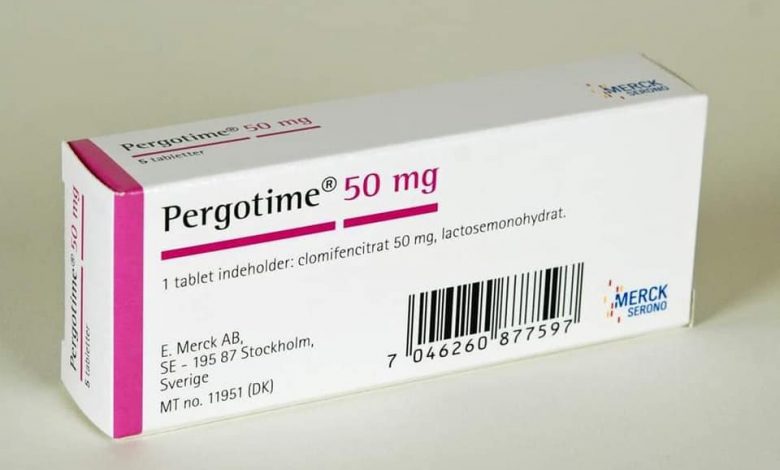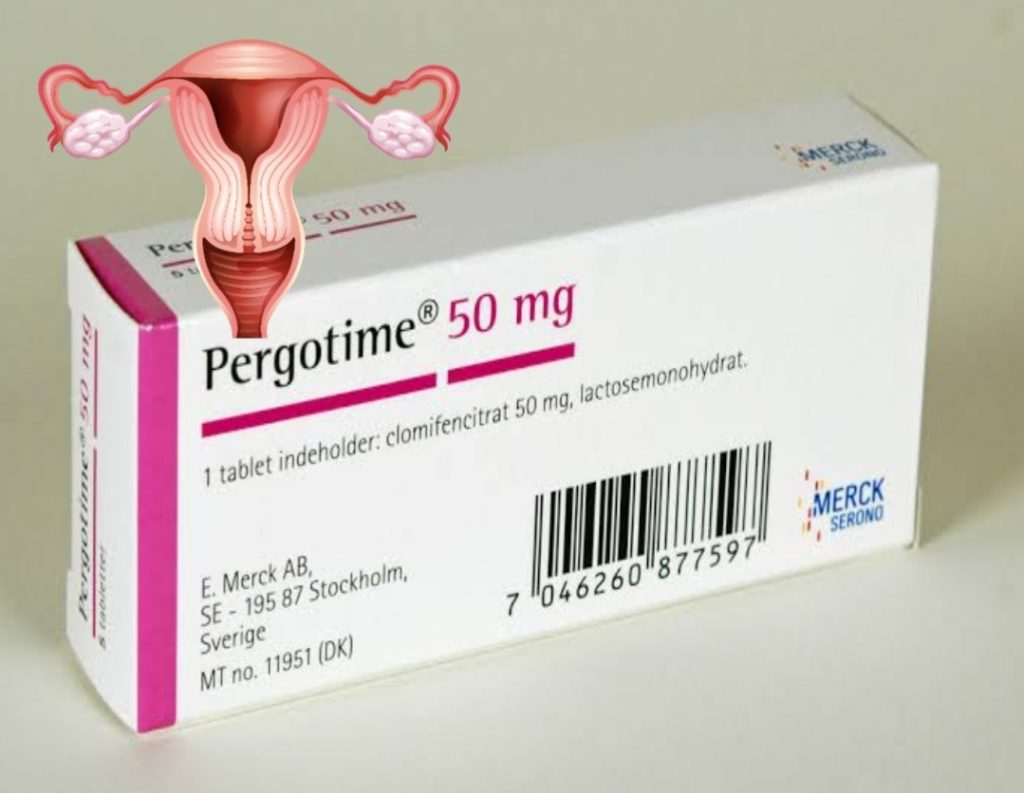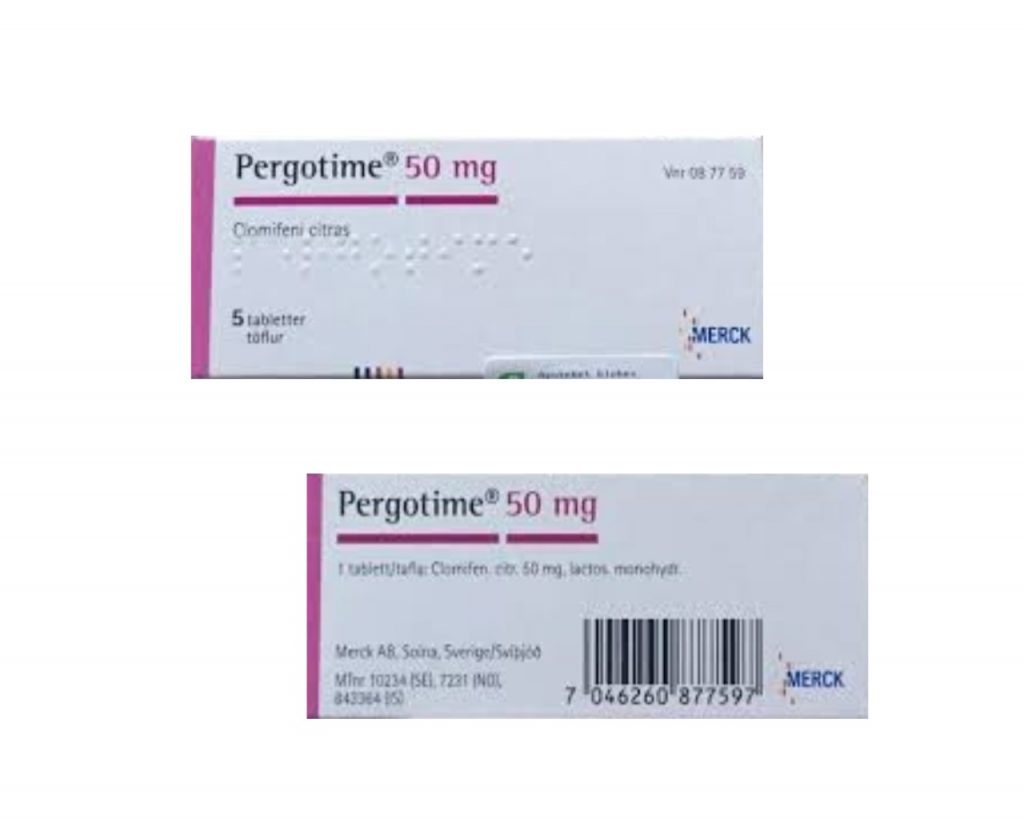Pergotime 50mg Pills: Uses, Benefits, Dosage, Side Effects, Interactions

What is Pergotime?
Pergotime is a brand of clomiphene citrate, a medication used to treat infertility in women who do not ovulate, including those with polycystic ovary syndrome. Pergotime is a long-trusted oral medication relied upon for its safety, effectiveness, and relatively low cost.
Pergotime is used to treat absent or irregular menstrual cycles (ovulation induction), to address a condition called luteal phase defect by increasing progesterone secretion during the second half of the cycle, and to make menstrual cycle lengths more predictable, thus improving the timing of intercourse or artificial insemination. Pergotime may also be used to enhance ovulation in women who are already ovulating (ovulation augmentation).
How does Pergotime work?
Pergotime triggers the brain’s pituitary gland to secrete an increased amount of follicle-stimulating hormone (FSH) and LH (luteinizing hormone). This action stimulates the growth of the ovarian follicle and thus initiates ovulation.
How should I take Pergotime?
Pergotime comes as a tablet to take by mouth. It is usually taken once a day for 5 days, beginning on or about day 5 of the cycle. To help you remember to take Pergotime, take it around the same time every day.
Follow the directions on your prescription label carefully, and ask your doctor or pharmacist to explain any part you do not understand. Take Pergotime exactly as directed. Do not take more or less of it or take it more often than prescribed by your doctor.
During a normal menstrual cycle, only one egg is ovulated. The use of Pergotime often causes the ovaries to produce two or three eggs per cycle.
Pergotime used in conjunction with a medication called Provera may be effective in initiating menstruation and ovulation in women who have no menstrual cycle:
• Treatment begins with a 5-7 day course of Provera, taken orally.
• Two to three days after Provera is completed, a menstrual period should begin.
• On the 3rd, 4th, or 5th day of menstrual flow, a course of Pergotime is started.
• A Pergotime citrate 50 mg tablet is taken orally for 5 days.
• On day 11 or 12 of the menstrual cycle, ultrasound monitoring is conducted to determine if an ovarian follicle or follicles have developed. Also at this time, patients are asked to use an ovulation predictor kit to test their urine for a surge in LH (luteinizing hormone) indicating that eggs have matured and ovulation is imminent. If no LH surge is detected, ovulation itself may be triggered with an injection of the medication hCG (Ovidrel), which will cause the release of the mature egg(s) from the follicle(s).
• Natural intercourse or insemination is timed to ovulation.
• If ovulation has been assisted by an hCG injection, a form of the hormone progesterone is given via vaginal tablets or gel. The progesterone hormone serves to support the endometrial (uterine) lining and prepare it for the fertilized egg.
• Two weeks after ovulation, patients are asked to take a home pregnancy (urine) test. If the test is positive, a blood test will be performed to confirm the results.
If ovulation doesn’t occur during this initial Pergotime dosage, another course of provera will be prescribed and the dose of Pergotime increased until ovulation occurs. It may be possible to begin another Pergotime cycle immediately or, if residual cysts are present on the ovarian follicles, a ‘rest’ cycle may be advised before resuming treatment.
If ovulation cannot be induced even with a higher dose of Pergotime, this form of treatment will be discontinued, and ovulation induction may be attempted again using a different form of fertility drug (letrozole or gonadotropins).

What are the Side Effects of Pergotime?
As with most medications, patients taking Pergotime may experience some common side effects. These include:
• Bloating.
• Breast discomfort or tenderness.
• Headaches.
• Hot flashes.
• Mood swings.
• Nausea or vomiting.
Other side effects include:
• Dizziness or lightheadedness.
• Heavier menses or irregular menstrual bleeding.
• Trouble sleeping.
Side effects do not appear to be dose-related, as patients may experience these common side effects even on the lowest dose of the medication. Most people have either no side effects or mild symptoms only.
More moderate side effects are rare and may occur during or shortly after Pergotime therapy. These may include:
• Blurry vision or double vision.
• Ovarian enlargement may also occur, which can present with significant abdominal pain or pelvic pain, weight gain, or significant bloating
If you experience any of these side effects, check with your doctor as soon as possible.
Use of Pergotime increases your chances of having multiple pregnancies by approximately 5%. However, the majority of pregnancies achieved after a Pergotime cycle are singleton pregnancies.

Can I take alcohol while taking Pergotime?
No, drinking alcohol can affect the way Pergotime works and increase the risk of unwanted side effects. Drinking alcoholic beverages or smoking tobacco may also decrease your chance of becoming pregnant. Limit or stop alcohol and tobacco use during your fertility treatments.
Where to buy Pergotime?
Your gynecologist or fertility doctor can provide you with a prescription. Sometimes a healthcare provider can also provide you an order. We recommend seeing a fertility specialist whenever possible. Their expertise in female infertility can ensure that Pergotime is the appropriate treatment for your condition. Fertility clinics are the best places to obtain and monitor Pergotime treatment due to their highest expertise in infertility.
Pergotime is still considered low-tech fertility treatment and is typically a covered benefit by any primary health insurance. Patients that pay Pergotime out of pocket spend about $50 or less.





